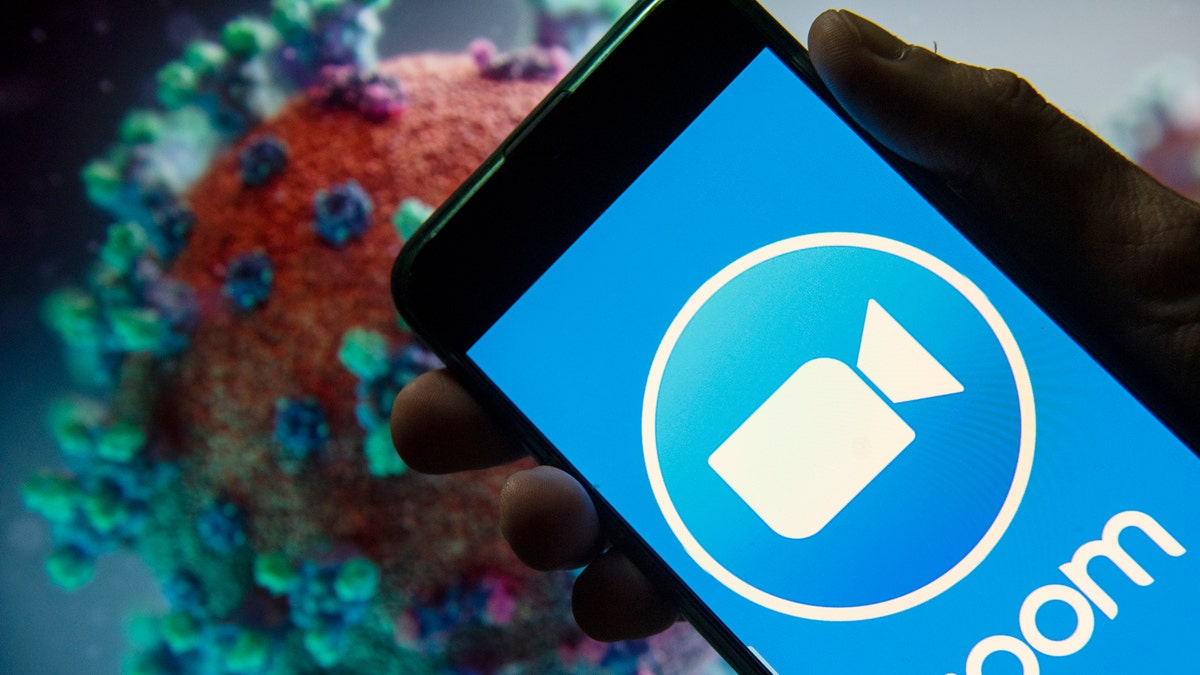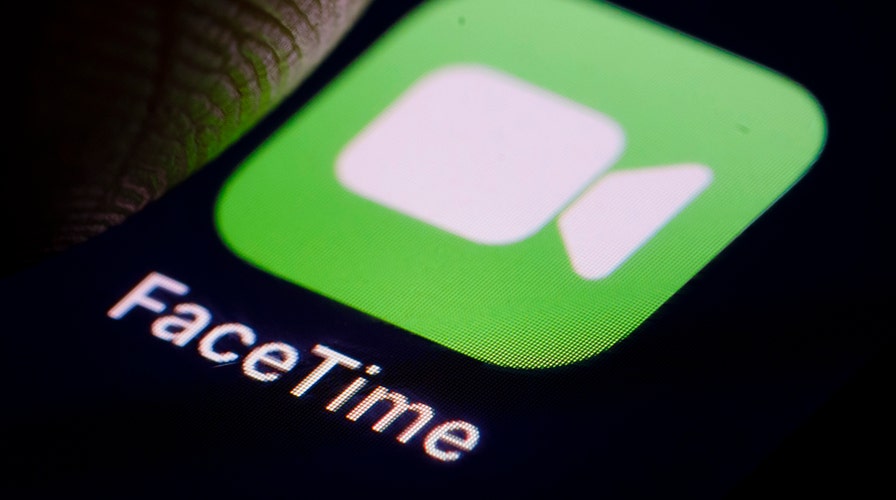Fox News Flash top headlines for April 1
Fox News Flash top headlines are here. Check out what's clicking on Foxnews.com.
Get all the latest news on coronavirus and more delivered daily to your inbox. Sign up here.
With the coronavirus pandemic upending everyday life, the Dept. of Health and Human Services has made the extraordinary announcement to allow video chat apps such as Apple's FaceTime and Zoom for medical consultations.
"During the COVID-19 national emergency, which also constitutes a nationwide public health emergency, covered health care providers subject to the HIPAA Rules may seek to communicate with patients, and provide telehealth services, through remote communications technologies," the HHS wrote in an announcement on its website.
Also included on the list are Facebook Messenger video chat, Google Hangouts and Microsoft's Skype.

In this photo illustration the American video Communications company Zoom logo seen displayed on a smartphone with a computer model of the COVID-19 coronavirus on the background. (Photo Illustration by Budrul Chukrut/SOPA Images/LightRocket via Getty Images)
CORONAVIRUS PANDEMIC IMPACT: WHAT IS TELEMEDICINE AND TELEHEALTH?
Using these programs brings privacy concerns and the issue they may not be "fully compliant" with the Health Insurance Portability and Accountability Act of 1996 (HIPAA). However, the HHS added that providers should notify patients there are privacy risks with these apps, while noting "providers should enable all available encryption and privacy modes when using such applications."
Several video chat apps, including Facebook Live, Twitch and TikTok, as well as "similar video communication applications," are not available for use in telehealth, the HHS added.
According to Teladoc, a telehealth company, demand for telehealth and telemedicine services are rising rapidly, as patient visit volume recently spiked 50 percent week-over-week in the week ending March 14.
Traditionally, the HHS has not allowed these types of apps for telehealth for care decisions, primarily because of privacy concerns. Instead, Epic medical software has been used, but the pandemic has significantly altered that for the time being.
“The traditional health care system simply does not have the capacity to address a worst-case scenario when it comes to the coronavirus,” Dr. Mark Smith, professor of clinical medicine at the University of California at San Francisco (UCSF) and member of the Teladoc Health board of directors, said in a statement.
The World Health Organization (WHO) recently recommended using telemedicine to evaluate suspected cases of COVID-19 disease, “thus minimizing the need for these individuals to go to health care facilities for evaluation.”
On March 17, the Trump administration announced what it called “unprecedented steps” to expand Americans' access to telehealth and telemedicine services during the COVID-19 outbreak.
CLICK HERE FOR COMPLETE CORONAVIRUS COVERAGE
As of Wednesday morning, at least 874,000 coronavirus cases have been diagnosed worldwide, 189,633 of which are in the U.S. The disease has accounted for at least 43,291 deaths around the world, including at least 4,000 people in the U.S.
Fox News' Brooke Crothers contributed to this story.









































